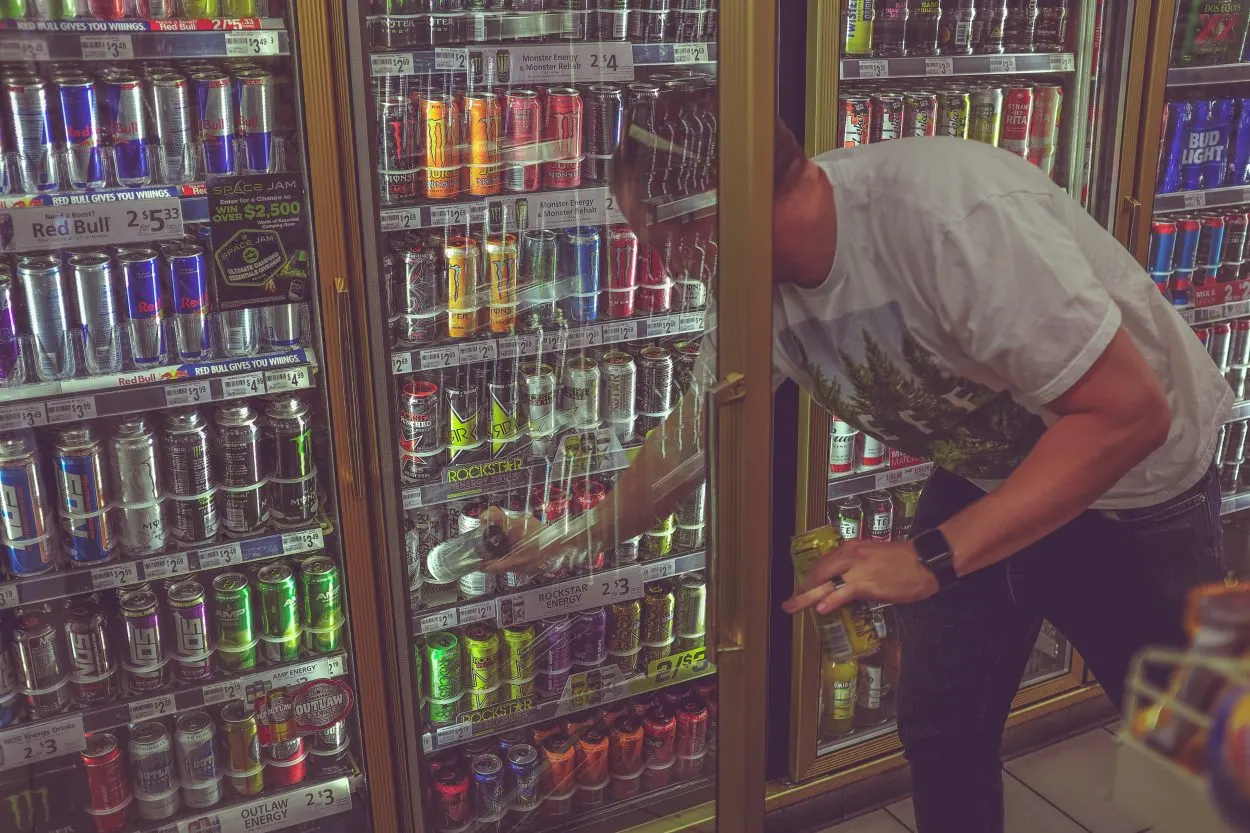
Energy drinks have been influencing the lives of people all around the world, they’re now available in every country and in a wide range of flavors and brands.
People consume such drinks to enjoy their effects, like increasing their mental and physical performance.
While energy drinks are only marketed to adults, teenagers have had their hands on them which has raised many health concerns.
One of the biggest concerns is the sheer dose of caffeine in energy drinks. For instance, an 8-ounce can of Red Bull has 80 mg of caffeine and which is fairly larger considering the size of the can.
Because of such ingredients, the government has banned energy drinks for children under the age of 16. There’s so much that the government can do, but teenagers have many tricks under their sleeves.
There’re some energy drinks that are banned for adults as well as teenagers consumption in some countries.
For instance, France, among other European countries banned Red Bull because of its harmful ingredients. However, the ban has been finally lifted after 12 years in all those countries, making Red Bull legal to consume.
There’s so much that you not be familiar with, thus I suggest you keep on reading. Let’s begin!
Contents
What Countries Have Banned Red Bull?
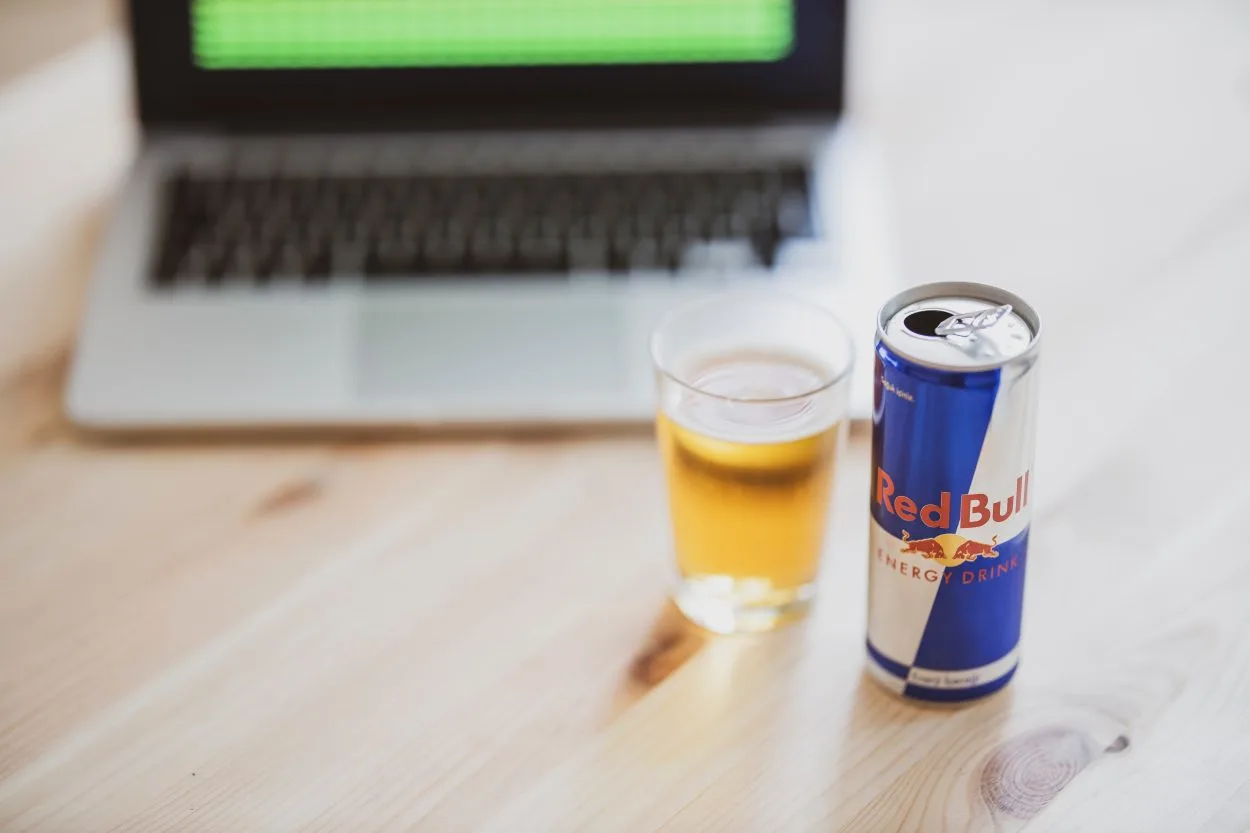
Red Bull is one of the most well-known energy drinks with the largest market share. An 8-ounce Red Bull can have 80 mg of caffeine, 27 g of sugar, and 110 calories.
With such alarming doses of caffeine and sugar, Red Bull was looking to get banned.
Red Bull is enjoyed all over the world, people consume it immoderately because it’s inexpensive and provides the alluring effects that people “believe” are required.
Nonetheless, Red Bull isn’t available in every region, it was banned in a number of countries including France, Denmark, and Norway.
However, the ban has been lifted which makes Red Bull legal to consume in all the countries that once banned the popular energy drink.
Moreover, until 2008, solely the toned-down versions of the energy drinks, containing no taurine were sold in France and some other countries.
If I may, the government was right to ban Red Bull and some other similar energy drinks because the consumption of such drinks is more among teenagers rather than adults.
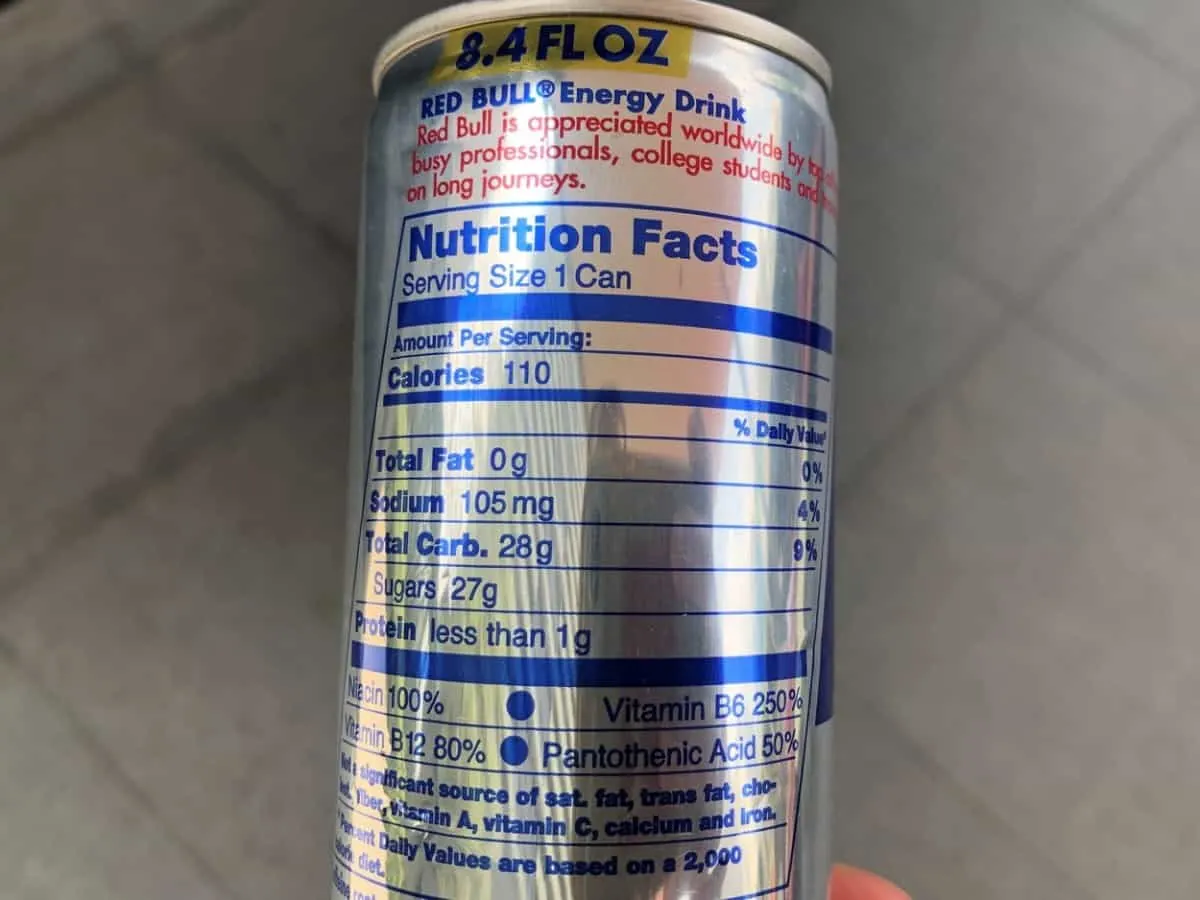
Check out the nutritional facts of Red Bull to know more about the drink:
| Typical Values | Red Bull (8.4 fl. oz) |
| Energy | 110 calories |
| Fat (Of which Saturated) | 0g (0g) |
| Carbohydrate (Of which Sugars) | 28g (27g) |
| Caffeine | 80mg |
| Taurine | 1000 mg |
| Sodium | 105mg |
| Vitamin B3 (Niacin) | 22mg |
| Vitamin B5 (Pantothenic Acid) | 5.05mg |
| Vitamin B6 | 5.05mg |
| Vitamin B12 | 5.1µg |
Check out the list of side effects associated with the consumption of Red Bull that it:
- can increase blood pressure and heart rate.
- may increase type 2 diabetes risk.
- may damage your teeth.
- may negatively affect kidney health.
- may increase high-risk behavior.
- may lead to caffeine overdose and toxicity.
Furthermore, as an 8-ounce can of Red Bull has 27 g of sugar, consuming more than one can every day leads to side effects which include:
- Headaches.
- Irritability.
- Feeling jittery or anxious.
- Feeling shaky or dizzy.
- Hunger.
- Bloating.
- Higher blood pressure.
- Inflammation.
- Weight gain.
- Diabetes.
- Fatty liver disease.
Red Bull contains 80 mg of caffeine and 27 g of sugar for such a small size can, so there’re many reasons to ban Red Bull.
Anyhow, the reasons are not enough to prevent immoderate consumption among teenagers. Thus it’s up to you to take care of your health and avoid horrifying side effects.
Are Energy Drinks Banned In The UK?
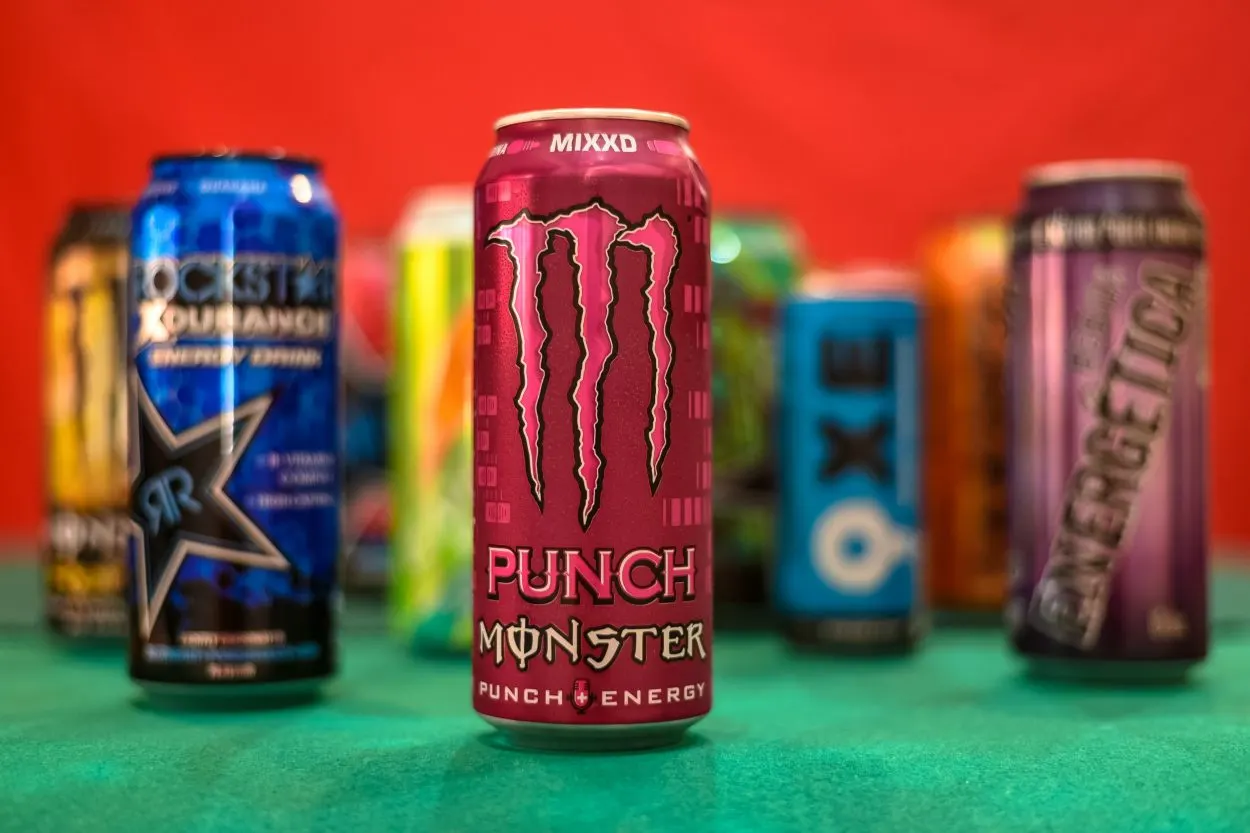
The government of the UK launched a consultation plan on banning the energy drink sale to children under 18, however, the law has never been passed, which makes the consumption of energy drinks by adults as well as underage children legal.
Energy drinks have become popular in every country, including the UK. In fact, In 2019, volume sales of energy drinks increased by 3.9%, ultimately helping the energy drinks sector make an important contribution to the UK economy.
In my opinion, Americans consume more energy drinks compared to any other country, especially teenagers, however, still, none of the energy drinks were banned.
Why Energy Drinks Are Banned?
A can of low-caffeinated energy drinks won’t do much harm, but teenagers quite like the energy-boosting effects of energy drinks, leading them to overconsume.
In fact, a 2018 report from the Department of Health & Social Care examined that, many teenagers have the tendency to consume three or more cans in just one sitting.
Contrary to what teenagers think, it’s not foolish to ban energy drinks for underage children as there are major concerns. The concerns mostly regard both the long-term and short-term effects on mental and physical health.
Moreover, several types of research have pointed to the negative effects of energy drinks on underage children which span from behavioral, concentration, and insomnia issues.
Where Is Monster Banned?
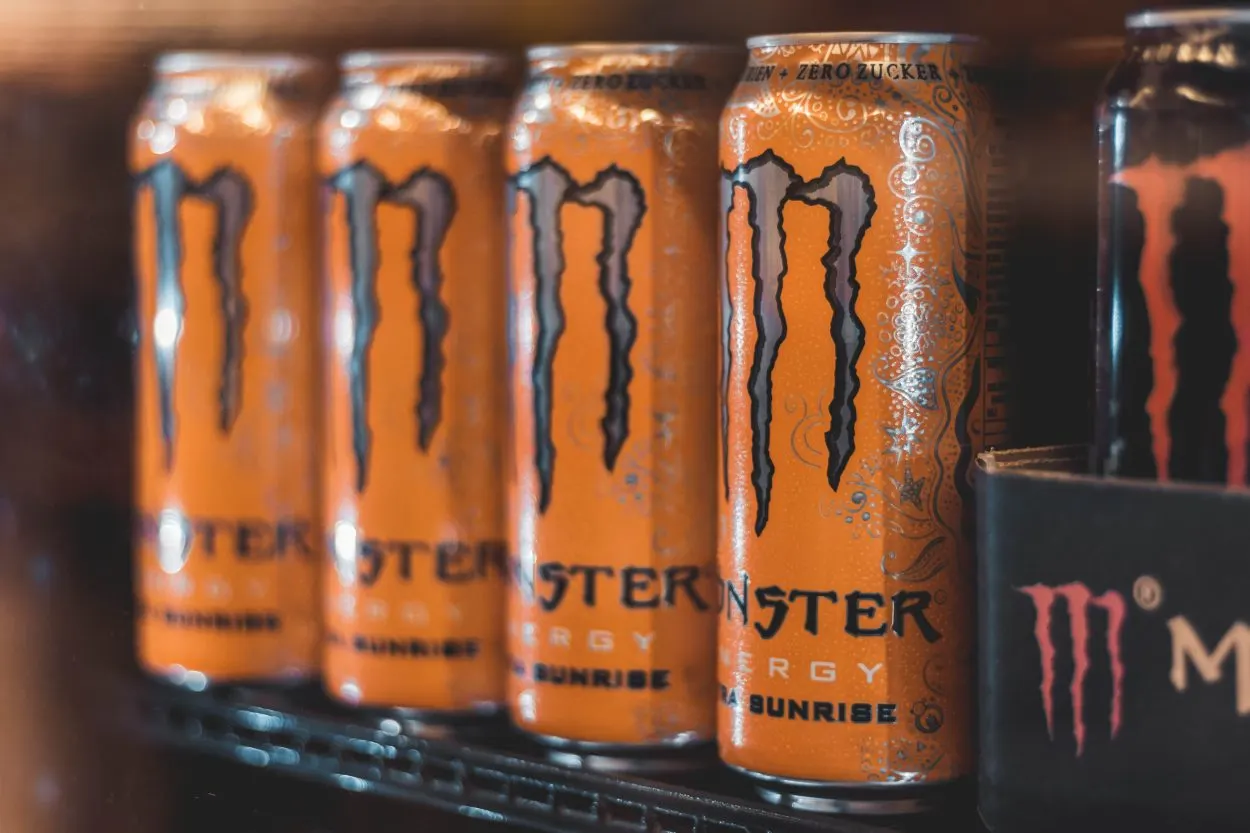
Monster has the second largest market share, after Red Bull, since its launch it has expanded and come out with several flavors, including the sugar-free version.
Nonetheless, besides sugar, there’re other ingredients that are dangerous for human health which has led to its ban in some countries.
The only country that passed the law to ban the sales of Monster energy drinks or other drinks that have caffeine and ginseng is India.
In 2015, Monster was banned by The Food Safety and Standards Authority of India (FSSAI) as it contained a high dose of caffeine and ginseng. Besides India, UK and Canada among other countries didn’t ban Monster but announced an age limit ban.
Nevertheless, there should be a ban on Monster because a 16 oz can of Monster contains 160 mg of caffeine, 191 calories, and 50 g of sugar which can be the cause of your death.
In fact, there have been several deaths that were associated with daily consumption of Monster. Moreover, Monster has also been sued multiple times by the victim’s family.
Check out the video below to know about the Monster lawsuits:
How Old Do You Have To Be To Buy Red Bull UK?
As of today, there’s no law that prevents any age to consume energy drinks, like Red Bull, however, I would advise against the consumption of such drinks, if you are under 18 years or younger.
Even if there isn’t any law or ban, one should be responsible with what they’re exposing their bodies to as there can be some consequences.
Energy drinks may give you a boost of energy for a couple of hours, but the high dose of caffeine, sugar, and some other ingredients develop several long-term health complications that you may not notice until it’s too late.
If you want to avoid any health complications, stick to the recommended limits for caffeine and sugar. According to the FDA, healthy adults should limit their daily caffeine consumption to 400 mg.
According to the AHA, women can have an intake of 25 g of sugar while men should consume 36 g per day.
That said, as long as you keep it in moderation and within the recommended limits, you’ll be fine.
Alternatives To Energy Drinks
There’re many energy drinks that can be healthy for you, thus check out the list below:
- OCA Energy
- Shine
- NUNU Energy
- Arbonne Fiz
- RUNA Clean Energy
Conclusion
- Red Bull was banned in France and Denmark among some other countries, however, that 12-year ban was lifted.
- Red Bull has several reasons to be banned, its caffeine and sugar levels are higher which can cause health complications.
- Moreover, some countries still have an age limit ban, meaning in many countries sales of energy drinks to teenagers is banned to prevent any health conditions.
- Monster energy drinks along with other energy drinks that contain caffeine and ginseng are officially banned in India as they can cause many heart problems.
- The monster energy drink has faced many lawsuits as some deaths have been associated with its regular consumption.
- Besides caffeine, the second worst thing about the recipe of Monster is that it contains 50 g of sugar which is a much higher dose than the recommended limit.
